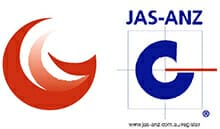Can You Forge Stainless Steel?
Can you forge stainless steel? You can and you should. Stainless steel is ideal for many metal working projects and offers unique qualities that make it useful in different scenarios. It is one of the world’s most popular and well-known metals for a reason. Stainless steel is corrosion resistant, strong and sturdy, attributes that forging can improve and put to good use. In this guide, we’ll introduce stainless steel, consider its varieties and demonstrate some applications.
What is Stainless Steel?
The term stainless steel covers a wide range of different steels. All stainless steels are iron alloys with at least 10.5% chromium content. This addition makes the stainless steel resistant to corrosion and maintains a smooth surface even in harsh environments. That’s why it’s called stainless! Stainless steel is a fantastic choice for forging because it combines durability and strength.
Different types of stainless steel
300 series
Metalworkers have developed different types of stainless steel to enhance particular combinations of hardness and resistance. Specific combinations of the metal are known as ‘grades’. One of the most common types of stainless steel for forging is the 300 series. These steels are austenitic chromium-nickel alloys, which means they have uncommonly high corrosion resistance.
Type 304 stainless steel is the most common steel grade for forging. It has better toughness at room temperature than carbon steel, although it requires higher forging pressures to work. Another popular choice is type 316 stainless steel. Compared with type 304 stainless steel, type 316 stainless steel is particularly resistant to chloride corrosion. This attribute makes 316 a fantastic grade for surgical devices and cooking equipment.
Because of the relatively low content of carbon, these series of stainless steel do not respond to heat treatment. However, mechanical properties may be enhanced by cold working (forming/ forging), resulting in refined grain properties and therefore an increase in mechanical properties. They are also non-magnetic.
400 series
Another popular group is 400 series stainless steel. These grades have less corrosion resistance than the 300 series, and are classified as martensitic or ferritic. Martensitic stainless steels contain sufficient Carbon to display response to heat treatment. Therefore, fasteners made from this series can provide a solution in circumstances where both strength and corrosion resistance are required. However, it is important to emphasise that the corrosion resistance is not as good as austenitic steels.
Some of the common Martensitic stainless steels are 410, 416 and 431. These are all magnetic and can be hot or cold forged. In general, one needs to consider the attainable strength, corrosion resistance, and machinability. For example, Grade 416 has excellent machinability, but lower corrosion resistance than Grade 410, due to the presence of Sulphur in the 416. And, Grade 431 offers the best corrosion resistance of the above three grades, but it is the most difficult to machine.
In comparison, Ferritic stainless steels are Iron and Chromium alloys, they are magnetic and do not respond to heat treatment.
In terms of corrosion resistance, they are inferior to Austenitic and superior to Martensitic. One example of a Ferritic stainless steel is Grade 430. This forges reasonably well by both hot and cold methods, but it does not machine well. Again, one needs to balance out the desired properties and availability of these grades, before making a decision.
Austenitic-Ferritic series
Another popular family of stainless steels is the family of a combined Austenitic-Ferritic series, otherwise known as the Duplex grades. The composition of each of the Duplex grades is dictated by the need to produce a microstructure of approximately 50% Austenite and 50% Ferrite. The most common Duplex grade is referred to as 2205. The competitive advantage of Duplex stainless steels is the combination of high strength with good corrosion resistance at a reasonable cost.
There are other groups of stainless steel grades, such as the 200 and 500 series. The best one for you will depend on which manufacturing process you’re using and the properties you’re looking for in the finished product. When considering the best steel for you, it’s great to consult with experienced metalworkers who will be able to guide you through your options.
Can you forge stainless steel?
Although forging stainless steel can require more energy than carbon steel, the results justify this additional exertion. Stainless steel is a high quality metal, and forged steel enhances its qualities of corrosion resistance and toughness. Stainless steel forgings enable the metal grade to handle harsh environments and intensive manufacturing processes. Forging your stainless steel also changes the grain structure of the metal, creating a unique ‘Damascus steel’ pattern that ensures the strength of the metal evenly distributes throughout the piece.
Stainless steel forgings have clear advantages beyond enhancing particular qualities. Through forging, you can create stainless steel pieces in the desired shape. Whether operating with high forging temperatures or cold forging, these processes create very little waste material, unlike other techniques such as machining. Particularly when outsourcing your work to experienced metal workers and using the best equipment, forging is an efficient process that creates a superior product. This efficiency means the answer to ‘can you forge stainless steel’ is yes.
Applications of forged stainless steel
Forged stainless steel is a versatile and useful metal. Grades with good corrosion resistance and high heat resistance are used as components in automobiles and aircraft, or as pieces of equipment in the food industry. The best grades of austenitic steel can stay incredibly clean and sterile. These qualities are employed to make surgical tools and components for chemically intensive processes like dyeing. Stainless steels that emphasise high strength over high resistance are used to make tough cutlery and industrial components.
Our stainless steel work
Greg Sewell Forgings is a partner you can trust with steelwork. As one of Australia’s oldest forging companies, we have gained experience working across several different industries. Our proficient team focuses on providing high quality and efficient service extending to multiple stainless steel forging capabilities. We’re happy to help with a range of forging needs, from helping you design custom-forged parts to creating forged steel threaded fittings and other intricate products. We’re ready and capable to help you complete your projects.





